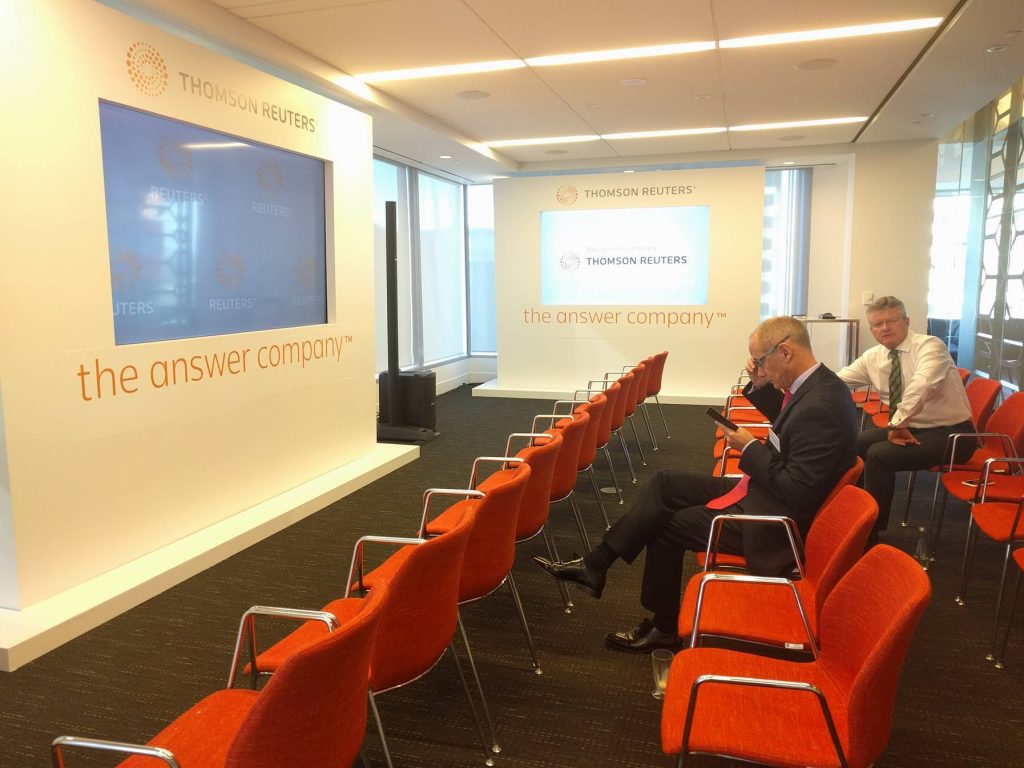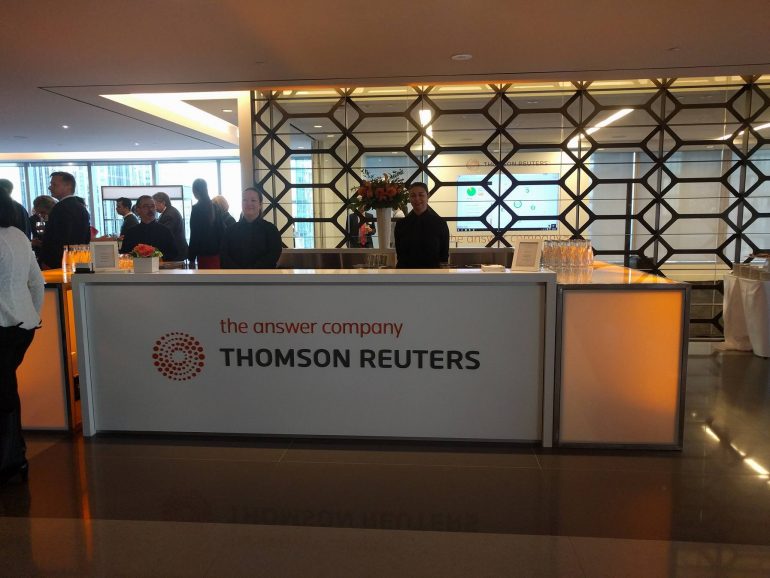Thomson Reuters announced the opening of a new technology centre in Toronto in an effort to expand Canadian operations, and the organization says it will create 400 technology jobs over the next two years. The plan is to grow to 1,500 jobs over time.
Thomson Reuters hopes that establishing the Centre in downtown Toronto will encourage cross-collaboration between Kitchener-Waterloo and Toronto, and attract top tech talent from the corridor. The location of the Centre is apparently “strategic” due to its proximity to its customers like the big five banks, and projects coming out of the Centre will focus on “customer-driven innovation” in FinTech.
“Canada is not only our home, it is home to an emerging ecosystem of world-class technology talent,” said Jim Smith, president and chief executive officer of Thomson Reuters. “Our new Technology Centre furthers our commitment to growing Canada’s preeminent hub of innovation, and to building the customer-centric platforms and solutions of the future. We applaud the Canadian federal, provincial and municipal governments for making jobs, innovation and the knowledge economy a top priority and look forward to our role in supporting these initiatives.”
CEO Smith and Thomson Reuters CFO Stephane Bello will be relocating to Toronto in 2017. Additional management will be relocated to Toronto over the next few years. During the official announcement in Toronto, Ontario Premier Kathleen Wynne, Prime Minister Justin Trudeau, and Toronto mayor John Tory stood with Smith to talk about the Centre’s impact on the city and the Canadian economy.

Tory called Thomson Reuters’ decision to move its its key executives to Toronto, where the company was founded, a “historic” event.
“It’s important to mark the return of more decision-making to Toronto and this great new tech centre. People have said to me, as the mayor of Toronto, what am I doing talking about somewhere outside Toronto,” said Tory on fostering collaboration between Toronto and Waterloo Region. “But we are Canada’s champion in this region where we can grow and say companies like Thomson Reuters, a Canadian global multinational, can come here and it isn’t a decision you make just because of your Canadian roots. It’s because we deserve to have you here.”
As the discussion centred around how large companies like Thomson Reuters could help Canadian talent and startups scale up, BetaKit asked Trudeau whether the government was looking to create more homegrown scaleup programs to help companies scale, or turning to larger multinationals to set up shop in Canada and provide that support.
“Creating clusters and ecosystems in which there are tremendous opportunities for startups — as well as established companies — to support each other to greater heights is one of the challenges that we need to resolve if we are going to get more Canadian companies to scale up and be more significant global players,” said Trudeau. “This is great news for everyone working in the ICT sector around Toronto and Kitchener-Waterloo, and the various areas that will be impacted by the drawing in and putting forward of talent and investments. It’s showcasing how exciting a time it is to be growing and building stronger companies in Canada.”
The Centre will be initially located in Bremner Tower and focus on emerging skills like cognitive computing, visualization, user experience, and cloud development. Thomson Reuters will start hiring in the coming weeks, with focus on skills related to the company’s cognitive computing initiatives and core development.

“The mantra we have for startups is not to think about how to make Thomson Reuters your customer, think about how to make Thomson Reuters’ customers your customer,” said Brian Zubert, the director for Thomson Reuters Labs in Waterloo Region. The Centre won’t function like an accelerator, but will look at startups that are getting traction with Thomson Reuters customers and potentially work with them by looking for opportunities to integrate them into the Reuters product suite, white labelling, and channel sales.
“Reuters has typically provided software solutions to legal and financial institutions, that is also powered by all the data for those industries. So that data is valuable to startups and other applications, but it means you have to look at it a bit differently because one data feed in its isolation is hard to make sense of, but when you combine different data sets, you can draw richer analysis,” said Zubert. “Innovation occurs outside of our four walls whether we like it or not, so we can participate or not. We’re choosing to engage and partner with startups rather than compete.”
Thomson Reuters has established a presence in tech hubs between the Waterloo Region corridor in the past. Since 2015, the Thomson Reuters Labs has been hosted in Communitech, and Thomson Reuters sponsors the MaRS LegalX cluster.


